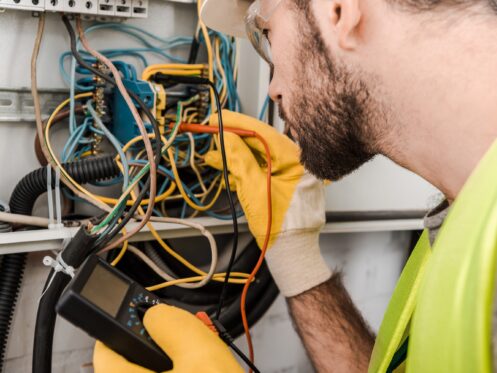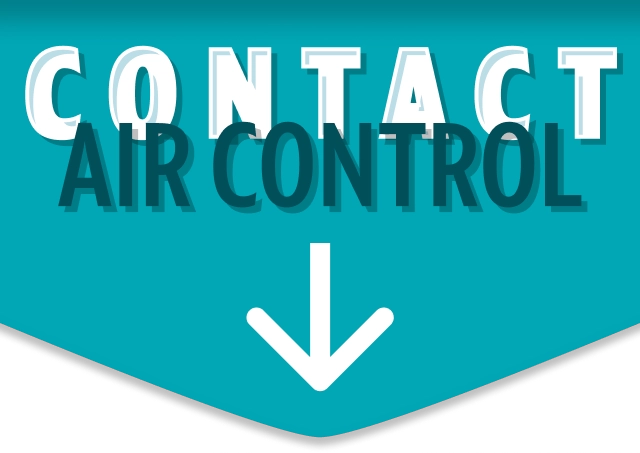Electrical hazards in your Lake Havasu City, AZ home can result in fires, damage to devices and electronics, and electrocution. Recognizing electrical hazards can help you prevent problems and promote a safer home environment. We here at Air Control Home Services can assist by performing a routine electrical inspection once per year and taking care of necessary repairs or maintenance.
Finding Electrical Cord Damage
You should periodically inspect all the electrical cords in your home for signs of damage, such as fraying, exposed wires or cracks. Look for dark marks on your cords that could indicate overheating or burning. Damage to these cords can put you at risk of electrocution if you touch exposed wires. This can also lead to a house fire if sparks come from the cords and ignite items nearby. Throw away any items that have damage.
Circuit Overloading and Overheating
When you plug too many electronics or devices into one outlet, this can lead to circuit overloading. This causes wires and devices to overheat, increasing the risk of an electrical fire. This can also cause permanent damage to your items. You may experience circuit breakers tripping frequently if this is an issue.
Problems With Your Wiring
Electrical wiring can last anywhere from 50 to 70 years. Over time, wiring can experience wear and tear from normal use, leading to problems and loose connections. However, incorrect installation can also cause damage, even in a brand-new home.
For partial replacements or whole-home rewiring, we always recommend that you work with an experienced and knowledgeable professional, such as the technicians on our team at Air Control Home Services. We complete all work according to local code to ensure safety and electrical integrity. Not only will this prevent dangerous situations, but it can also prevent inconvenient electrical failures.
Combining Water With Electricity
Water is an excellent conductor of electricity. When you combine these two things, electricity can travel through the water and cause electrical shock, fire or short circuits. If you have electrical appliances near a water source in your home, this is a dangerous pairing. Outlets that are near water should be ground fault circuit interrupters, or GFCIs for short.
These outlets protect against electrical shock by turning off power when they sense an imbalance in electrical current. You’ll commonly find them in kitchens, bathrooms and outside. Consider the placement of your outlets and the devices you have plugged in near water sources.
Outlets and Switches That Feel Warm
Touching the faceplate on your switches and outlets will alert you to anything that feels warm to the touch. This can indicate that there is a problem with your wiring that’s causing overheating. The only exception is a dimmer switch. They have the potential to feel slightly warm. However, they shouldn’t feel overly hot.
In addition to outlets that feel warm, make sure you never experience any degree of electrical shock when you touch these fixtures. Faulty wiring, grounding issues and overloaded circuits are common causes of shock.
Experiencing Frequent Appliance and Device Problems
Do you find yourself frequently calling for repairs for the same appliances or devices in your home? Electrical issues could be to blame. The same applies if you’re replacing appliances more frequently than is typical and there are no other known issues, like water quality concerns.
Smoke or Burning Smells
You should never see smoke coming from any of your outlets or switches. Smoke indicates serious damage in the wiring behind the walls. If you do see smoke or burn marks around an outlet, cut power to that circuit immediately and call for assistance. This also applies if you smell something burning inside your walls, outlets or switches.
Increases in Energy Consumption
Are your monthly energy bills increasing even though your usage isn’t increasing? Electrical issues could be to blame. These kinds of increases could develop slowly over time, or they could be more sudden. You may be experiencing energy loss, which is causing your electrical system to work harder to power your lights, appliances and more. Overloaded circuits and short circuits can also raise energy consumption.
Lights That Flicker or Dim
If you notice your lights flickering or dimming randomly, you may have an overloaded circuit. This may occur intermittently or when an appliance or device turns on in your home and it is on the same circuit as the lights that are affected. Loose wiring is another common cause of the problem.
Buzzing or Humming Sounds
Your electrical system should be completely quiet. If you notice buzzing or humming sounds coming from areas with wiring, you might have issues with loose connections, damaged wiring, faulty breakers or overloaded circuits. Transformers buzz or hum normally, but this shouldn’t be an issue you notice in your home. Electrical panels may buzz or hum as they age and develop issues, such as aging components or damage. An upgrade can resolve this problem and keep your household safe.
Incorrect Use of Extension Cords
Extension cords can be a convenient solution when you need electrical access somewhere in your home or property that does not have a nearby outlet. However, many homeowners use these cords as a permanent solution, which can lead to an increased risk of fire or electrocution.
If you must use an extension cord, inspect it for signs of damage. Replace any cords that are damaged or very old. Always use a cord that is rated for the area where you are going to place it. For example, outdoor cords versus indoor ones. Keep your cords away from areas where they pose a tripping hazard or could become submerged in water.
Purchase a cord that is UL-rated. Underwriter’s Laboratories is a global safety organization that tests and certifies electrical products to ensure safety standards. Buying a UL-rated item will provide you with peace of mind and reliability for many years.
The Use of Surge Protectors
A surge protector contains metal oxide varistors, which absorb excess voltage. Surges are redirected to the ground to help stabilize the voltage. Make sure that you’re using surge protectors throughout your homes for things like televisions, computers and charging stations.
Different types of surge protectors are available. Power strip surge protectors are common for residential use. They provide you with more usable outlets while ensuring ample protection against power surges. A whole-house surge protector is installed on your electrical panel and protects your entire house. There are also uninterruptible power supply surge protectors, which offer battery backup and surge protection together.
We here at Air Control Home Services encourage you to educate your family members on safe electrical practices. This will help minimize the risk of hazards and keep you safe. Our electrical service team can help with annual inspections, update your outdated wiring, and make emergency repairs. We stay up to date on modern safety standards and local code enforcement.
Reach out to our team at Air Control Home Services in Lake Havasu City for more information or to schedule an appointment today.






